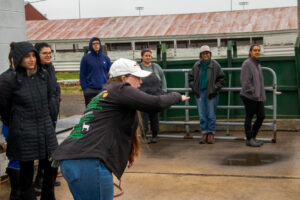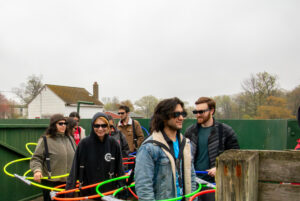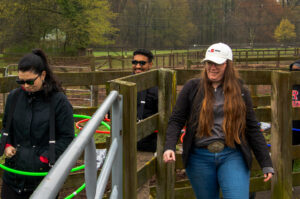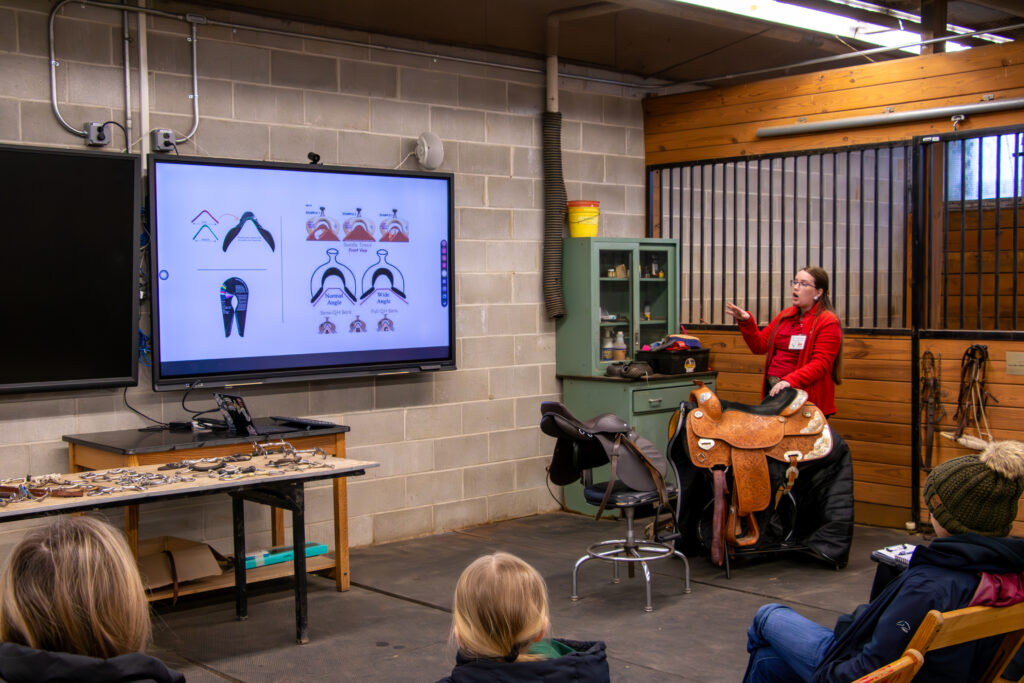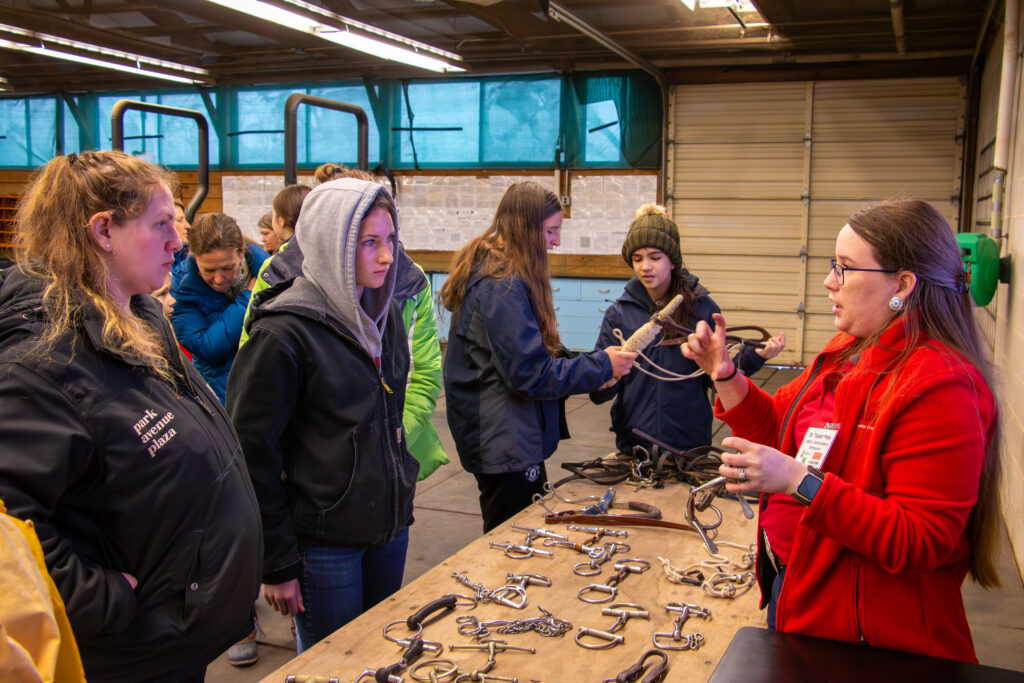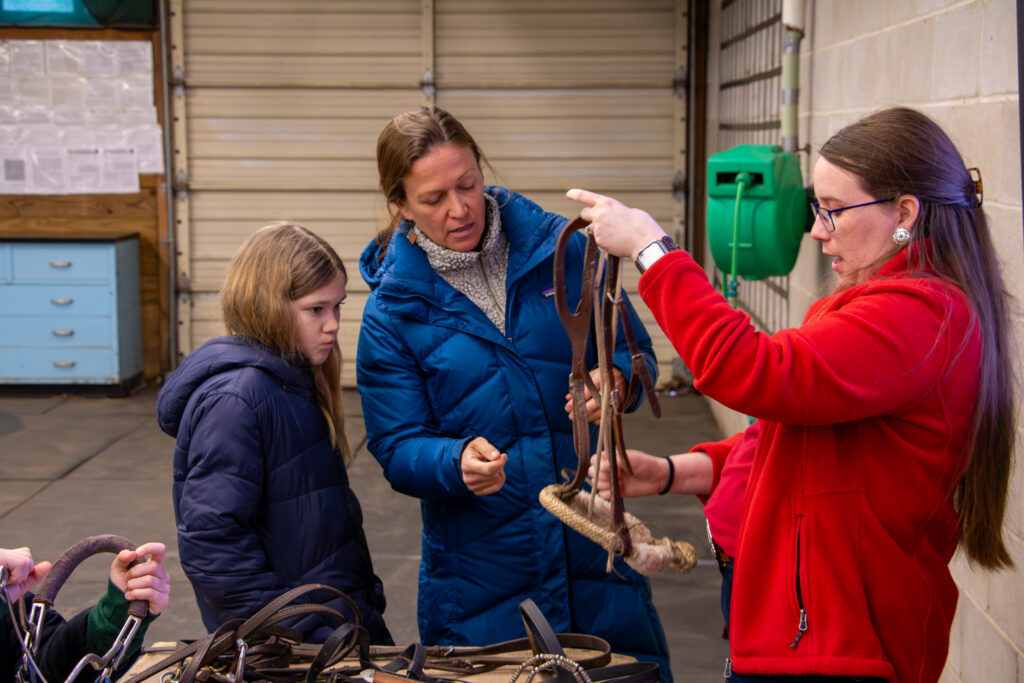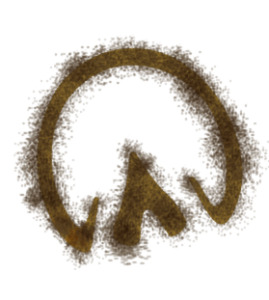Career: Equine Educator
Hay everyone!
Wow! We’ve had a pretty warm start to summer here at Rutgers! Even though all the students are finished with the spring semester, that doesn’t mean the folks at the Equine Science Center aren’t still hard at work. This week, I decided to chat with one of our Animal Science professors (who happens to love horses!): Dr. Taylor Ross. I think it’s been a while since I’ve done one of these blogs, can you remember the last professional we interviewed? (I’ll remind you at the end of this post just in case you don’t!)
Dr. Ross was welcomed by the Animal Sciences Department in 2022. You might remember her from one of my past blogs, so you can always go check that out to read her “formal introduction.” Dr. Ross has been quite involved with the happenings at the ESC as well as many 4-H events. As you will certainly see, she has quite the passion for education!
Lord Nelson (LN): What does your typical day look like as an animal science instructor?
Dr. Ross (Dr. R): It varies by the day! Which is part of why I like it. Overall, it may be better to ask what my typical week looks like by semester. I teach 3-5 courses per semester which has set class times 1-2 times a week. The courses I teach are Horse Management, Animal Assisted Therapy, Companion Animal Science, Animal Handling Fitting and Exhibition (sheep and goat sections, and some help with horse sections), and Domestic Animal Behavior and Welfare. I also do guest lectures in our Intro to Animal Science course and other courses as needed. Last semester I also founded the Rutgers Welfare Judging team which competes online in the spring and in-person in the fall. Two nights a week I attend club meetings for the clubs I advise: Society of Animal Science and Veterinary Science Club. Then in the down times, or occasionally full days, between those class times I find time to lesson plan, grade, and answer students’ questions. As well as fit in committee meetings, Equine Science Center activities, and other outreach events. I am also an advisor for the animal science major, so I spend a lot of time with those events and individual meetings with my advisees, especially around registration time!
LN: Wow! You seem really busy, so I’m glad I got the chance to chat with you. What was your educational path that led you to this point?
Dr. R: I started out thinking I was going to be a high school biology teacher, so started as an education major. I struggled with my first year of college and also changing my major, so I came back home and went to community college for a year. I then realized I should have just be Animal Science major all along and went to my land-grant school, University of Nebraska-Lincoln. I finished my degree on the Biology and Biotechnology track in the Animal Science program. I stayed at UNL for my master’s degree in Animal Science, focusing on stress physiology. I then went to Texas A&M University for my Ph.D. in Animal Science with a focus on Animal Science education. My dissertation work focused on undergraduate teaching assistants.
LN: That’s very well said, and it’s important for students to remember that their path isn’t always linear, and that’s okay. Did you have a point in time where you discovered what you wanted to do, or something that solidified your choice?
Dr. R: Every job I have ever considered always involved teaching and animals. So, there wasn’t a really a moment that set that into gear, as I started that so young in 4-H that it was just a given for me. Finding exactly what I wanted to do with that changed a bit over time. I thought I wanted to be a high school biology teacher, then was really leaning towards extension working with youth in 4-H. During my master’s I had the opportunity to do some pedagogy (study of teaching) projects. That really solidified that I wanted to keep doing that, and therefore teaching at the collegiate level. So, when I finished my master’s, I came back to the formal teaching route in a classroom and was lucky enough to find a rare Ph.D. position where I could still stay in the Animal Science world, but all my research work could be pedagogy projects. I then worked to find a 100% teaching position thinking I would have to be at a small state college, but I was lucky enough to find my position here at Rutgers!
Dr. Ross demonstrating an animal welfare exercise with her Domestic Animal Behavior and Welfare class. The students pretended to be cows!
LN: Well, we’re certainly happy you found us! We know you have a love for horses, how do you integrate them into your job?
Dr. R: Horses are what started this whole teaching passion for me, and so I am incredibly thankful I get to include them in my job. In the fall I get to teach Horse Management, so I get to talk about them for a whole semester. However, horses are able to be discussed in other courses as well such as my Animal Assisted Therapy and Welfare courses. Luckily being involved with the Equine Science Center also allows me to participate in outreach events teaching and learning about horses as well!
LN: What is your favorite part of the job?
Dr. R: I love working with students. I’ll admit I was nervous coming to New Jersey and how the students would be different and less experienced with animals, however, I have found I love the students here. Because this is new to many of them, they LOVE getting to learn about animals and to work with them. It makes it so rewarding when students are really interested in what you are teaching and even push me to learn new things with them. My favorite moment is always when a student has been struggling and finally it clicks and they get it. The growth I see in my students will always be the best reward. I love when students come back and tell me how things they learned in my class helped them later either in another class or their work.
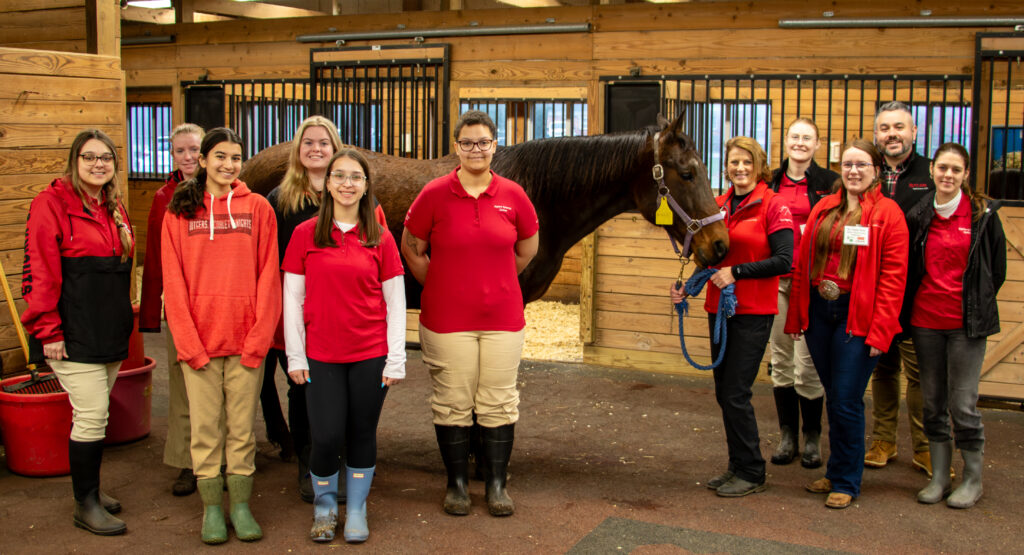 Dr. Ross with some of the undergraduate students, and Equine Science Center staff and faculty.
Dr. Ross with some of the undergraduate students, and Equine Science Center staff and faculty.
LN: That’s really wholesome! I’m sure they all appreciate your patience as they’re trying something for the first time. However, I must ask, what is your least favorite part of your job?
Dr. R: Of course, teaching is always going to come with some frustrating times. There are of course some students who are not as invested and struggle with attendance, participation, and/or turning in work, but I try to focus on the students that are there and invested and to continue to foster an environment that will encourage others to join in.
LN: Despite these struggles that you face sometimes, I’m glad you still have your heart set on teaching. Is there anything else you would like to share, or do you have any advice for those considering a similar career path?
Dr. R: I would highly recommend that all students get some teaching experience! We need more passionate and effective educators to keep the field of Animal Science going in the future. However, both from personal experience and what the research supports, students who have teaching experience do better in their chosen future careers, whether it’s an educational field or not. Most careers include some form of teaching, even if it’s not formal classroom teaching. So, reach out to your teachers/professors and see what you can learn and what experiences they have to offer you! Serving as a teaching assistant really helped solidify my plans for my future, and I have had many students tell me how it helped them as well in lots of different careers.
LN: These were some insightful answers Dr. Ross! Our readers will really enjoy hearing about your experiences, and I hope some are inspired to follow in your footsteps. Thanks for your time!
Dr. R: Of course! It was my pleasure.
Dr. Ross in action during the 2024 Horse Management Seminar.
I hope you got to learn some new things in today’s interview! I know I certainly did, and I get to hang out with Dr. Ross during our ESC events! Dr. Ross has a lot to talk about and I’m glad I get to share it with y’all. Maybe a career as an animal science instructor is right for you too!
Until next time.
Your friend,
Lord Nelson
P.S. The last career we focused on was a Standardbred breeder!

